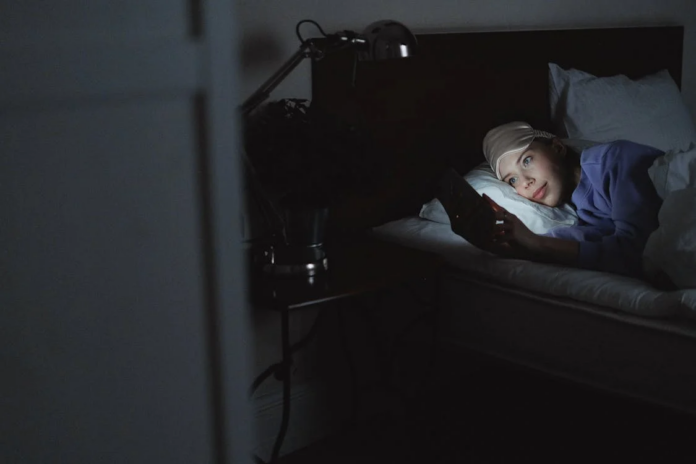Let’s face it, we’ve all had those nights where we can’t resist checking our phones before we hit the hay, even though we’re aware it’s not the best habit. Some of us even try to counteract the sleep-disrupting effects with blue-light glasses, which are said to filter out the sleep-cycle disturbing blue hues from our screens. And if you’re a fitness tracker user (chances are, you’re using one of the top-rated sleep or fitness trackers), you’ve probably experienced mornings where you’ve seen just how little shut-eye you got the previous night.
However, according to sleep scientists, it’s not the blue light from your phone that’s robbing you of sleep. I had the opportunity to meet some scientists at a launch event for the OnePlus Watch 2 Nordic Blue in Helsinki, where they shed some light on the impact of late-night phone use on sleep.

they explained that several factors related to light can influence your circadian rhythm. The intensity of light plays a crucial role. Exposure to bright light activates receptors in your retina that contain a pigment called melanopsin. This triggers a signal to your brain’s internal clock, prompting alertness.
While this pigment is more responsive to the blue end of the light spectrum, and phone screens do emit a lot of blue light, this becomes irrelevant if the light from your phone is dim.
Typically, the light from your phone is around 80 lux. In contrast, studies examining the effect of light on your circadian rhythm usually involve exposure to at least 2000 lux, sometimes even 5000 lux. A SAD lamp emits around 10,000 lux. Therefore, the impact of your phone’s light on your sleep cycle is minimal.
So, if it’s not the blue light from your phone that’s keeping you up, what is? scientists had the answer.
Studies have shown that the bright light from your phone only delays sleep by about 10 minutes. However, getting engrossed in your phone and losing track of time can delay sleep by nearly an hour. Compared to this sleep displacement, the effect of blue light exposure is insignificant.
The fear surrounding phone use stems from large-scale studies that found poor sleep quality among those who use their phones before bed. This led to the assumption that phones were the culprits behind poor sleep.
But there are other factors to consider. For instance, leaving your phone by your bed can lead to disturbances from notifications throughout the night. On the flip side, phones can also serve as a useful distraction, with audiobooks being a popular choice.
Scientists’ primary advice is to keep your phone out of the bedroom to resist the urge to doomscroll. However, if you use your phone to play sleep-inducing content, it might be worth placing it on a surface across the room, out of immediate reach.


